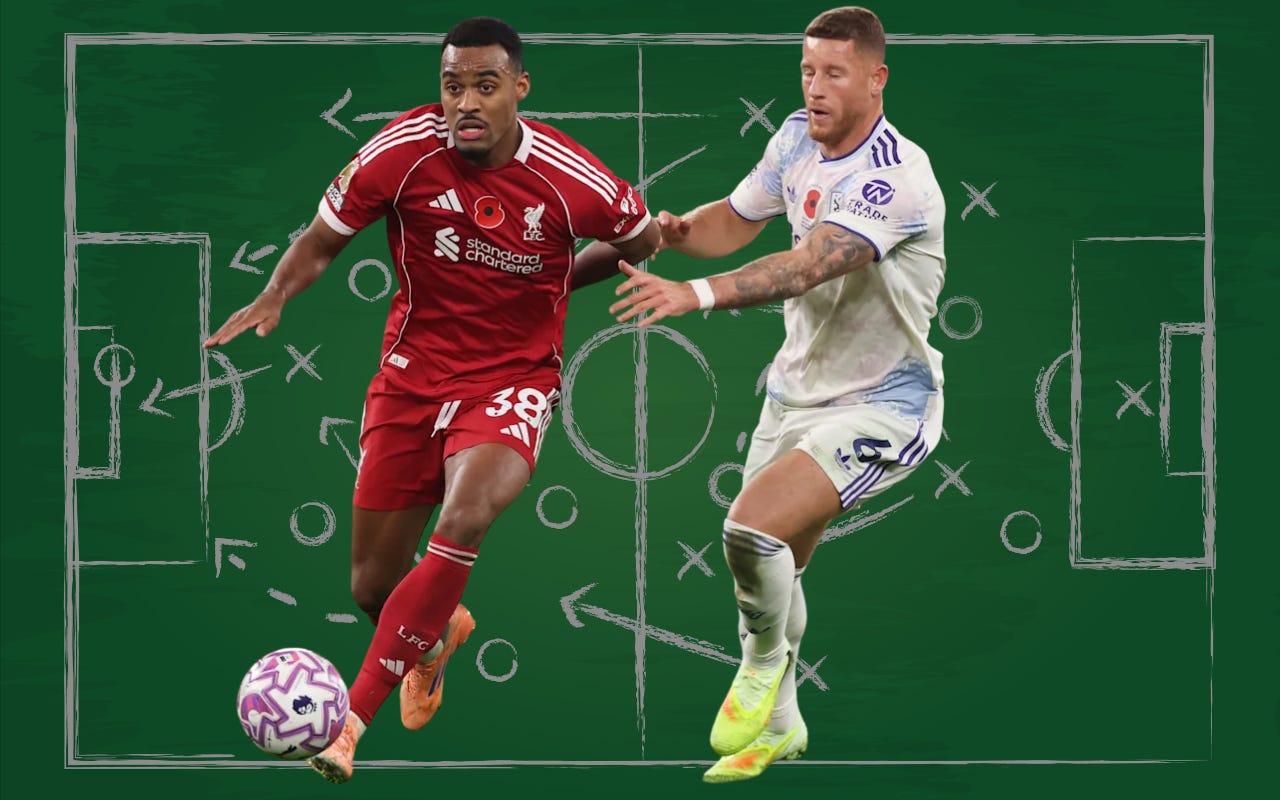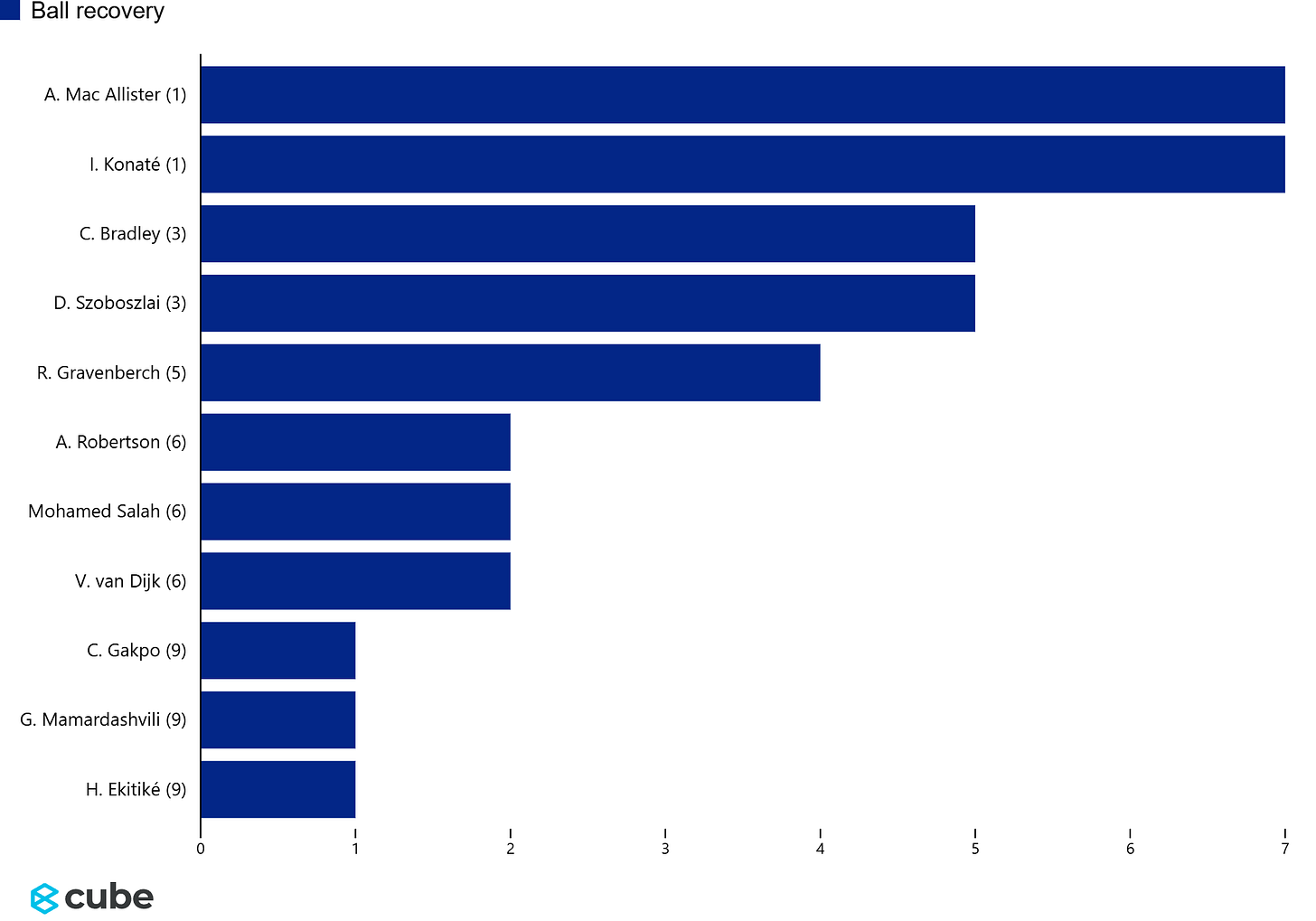Liverpool Beat Villa, But Data Shows Room to Grow
Improved pressing, better structure and ball recoveries helped stop the slide
Liverpool returned to winning ways with a composed 2-0 victory over Aston Villa at Anfield, just days before a pivotal stretch that will see them face Real Madrid and Manchester City. It was not just the scoreline that mattered but the manner of the performance against a side that has qualified for European competition in consecutive seasons.
Once again, Arne Slot’s selection reflected a short-term mindset. With Florian Wirtz not selected, the midfield trio that defined much of last season got the nod, and Hugo Ekitiké led the line. Conor Bradley and Andy Robertson took up full-back duties, leaving Milos Kerkez on the bench.
Goals from Pressing and Persistence
Mohamed Salah opened the scoring just before half-time, capitalising on a high-profile error by Emiliano Martínez. It was the kind of luck Liverpool have lacked of late, and it felt overdue. The second goal came through Ryan Gravenberch, whose deflected strike was the result of a successful counter-pressing action, turning defence into attack within seconds.
The underlying numbers remain imperfect. The average shot quality (xG per shot) was just 0.07, signalling that despite the goals, Liverpool’s attacking output still needs work. However, defensively they were much more assured. Unai Emery’s Villa, known for orchestrating fluid patterns in open play, found little joy, while Liverpool looked far more secure on set-pieces, an issue that has haunted them in recent games.
Villa were also less reliant on long balls compared to many of Liverpool’s recent opponents. Whether that was tactical or personnel-driven, it played into Liverpool’s strengths and allowed them to assert more control.
Defensive Recovery and Ball Winning
Mac Allister produced his best display of the season, and not a moment too soon. Dominik Szoboszlai’s off-ball energy stood out too, and the team, as a whole, looked more committed to the less glamorous side of the game.
Ball recoveries were frequent and well-distributed, with Mac Allister and Ibrahima Konaté topping the charts. Conor Bradley’s presence on the right was also notable, as was Liverpool’s general shape when defending transitions.





